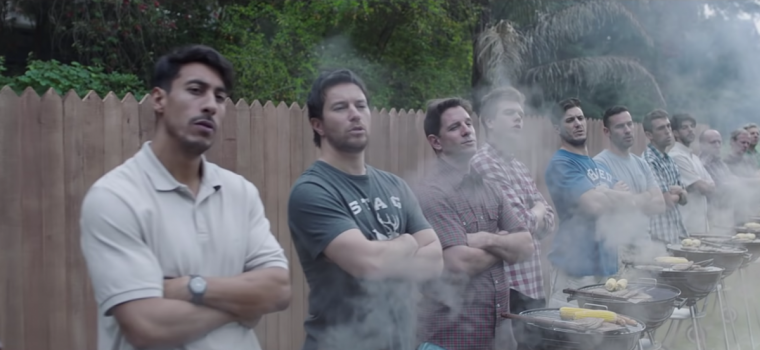Pulling no punches on toxic masculinity

The debate has been fierce and rigorous. Social media has lit up like a Sydney skyline on New Year's Eve. Why? Gillette released an advertisement. It hit a nerve, and stirred a national discussion.
What is toxic masculinity and what can we do about it?
You can see the Gillette advertisement here.
The conversation blog says that the, "Gillette ad isn't anti-men, it's anti-toxic masculinity – and this should be welcomed."
Melinda Tankard Reist writes in the ABC Religion and Ethics column that some have assumed that toxic masculinity means, "men are innately bad, defective and pathological." When really, what is intended is more, "certain expressions of masculinity are problematic."
That might be where some of the backlash from this advertisement has come from. "Who are you to say that I'm violent? Who are you to say I'm an angry man? Who are you to say I'm a sexual predator?" It's like some men have felt threatened or offended or condemned for their own behaviour, or lumped into a category not befitting of them.
Put aside the cognitive dissonance of a large conglomerate, Proctor and Gamble, financially benefitting from proactively engaging in a socially hot topic across the western world. That aside, surely the intent of the advert was to provoke, prod and wake up men just enough to have them consider the positives and negative expressions of their own masculinity?
Will boys just be boys?
One of the debates that rages since the Gillette advert is the question the sociologists wrestle with: To what degree is a boy's masculinity a result of the culture in which that boy is brought up in?
The conservation blog opines, "Critics ignore the explicit message of the advert, which is that gender is culturally constructed, and that we all have a responsibility to shape the future of our society. It isn't an attack on boys, or an attempt to stop them "being boys". It's about letting boys be any kind of boy they want to be. More importantly, it's about letting them care."
Dr. John Dickson, known for being a public advocate for the Christian faith, presents a different angle. He says, "Because of the dramatic differences in male and female hormones and muscle mass, men do much more of the physically explosive stuff in our world, both good and bad. Men do more armed combat, break up more fights, and rescue more innocents, as well as—tragically—commit more murders, crime, and domestic abuse. Virtually all men, in other words, have the capacity for toxic masculinity, even if we want to say that only a small minority of men exploit this capacity."
In theological terms, we talk about the human nature being corrupted by sin. We have a propensity to make choices that simply do not please God. I have young children and I see it all the time: how often do my children feel the desire to lie, and to get angry and to steal the other child's remote control (you may have different children to me).
Only by the grace of God, through Jesus Christ do we have the opportunity to turn from this sin and seek a new way to live.
Grab a new copy of my book called "Jesus Christ!" here.
We could debate gender stereotypes until the cows come home. Though, fundamentally we all have "sinned and fall short of the glory of God" (Romans chapter 3, verse 23). And as Gillette clearly portrays, some men have a fair bit of redemption still to experience.
Deep, deep down, there's a reason
So, why, as Michael Frost (Christian author and missiologist) questions, do people seem to lack the ability to, "applaud a commercial enterprise for intuiting the winds of social change and agree that men should be patient, kind, sensitive, respectful and composed?"
It's because deep down we're stubborn and deep down the advertisement hit a truth for many men, that they need to change. And I'm yet to meet anyone who celebrates a kick in the guts when it comes to changing character flaws.
The boys of today...
There's more to be said, of course. I think we should celebrate the highlights of masculinity expressed in ways that is transformative to the broader culture. I love it when my 7-year-old boy gives a big hug to his two sisters and tells them he loves them.
I think we should on the other hand be able to rationally, respectfully and intellectually debate a topic such as masculinity without the twittersphere having a meltdown and social media feeds imploding across the Australian landscape.
As Gillette say, "Men need to hold other men accountable." We should encourage each other, "To say the right thing, to act the right way." I agree with Gillette that some men demanding a better way are not enough. There's too many stories of women badly hurt by the selfish and violent acts of men.
Ultimately, we have an opportunity to model a way of living that will be an example worth emulating in younger generations.
Because...
The boys of today will be the men of tomorrow.
Courtesy of Press Service International











